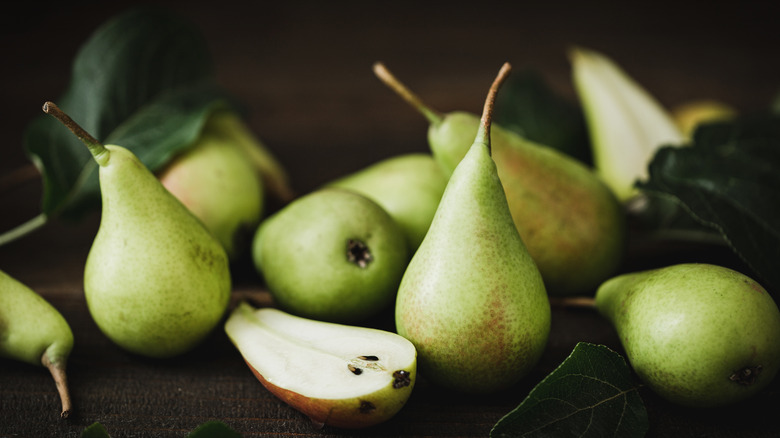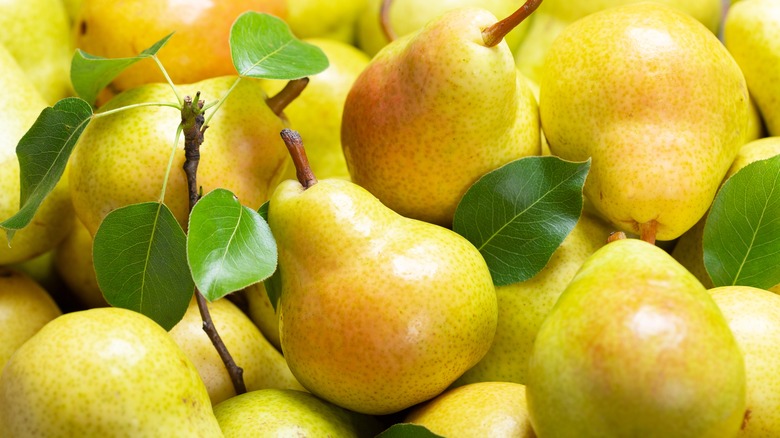Before You Freeze Pears, Be Sure They're Perfectly Ripe
Available late summer through early fall, pears aren't here for a long time, but rather a good time. Soft, juicy, and full of flavor, pears are a pleasure to snack on as is. However, their deeply nuanced profile also makes them a joy to work into blended smoothies, fruity sauces, spiced crumbles, flaky pies, and tasty tarts like a croustade. Yet, despite that there are endless ways to incorporate fresh pears into your favorite recipes, if you've overstocked your pantry, you might want to consider freezing the fruits — just be sure that pears are at peak ripeness before you do.
Freezing is the simplest way to make sure no produce goes to waste. Since there isn't an (imminent) rush to finish the fruit before it goes back, popping pears into the icy storage space ensures that you can reap the benefits of deliciously sweet and mildly floral pears long after the season has passed. From sandy brown Boscs to rosy red Starkrimson, plump Anjous to creamy Comices, and even freckled Forelles, any pear can be preserved this way as long as it's ripe.
This is because pears are picked once they've matured. But, a mature pear shouldn't be confused with a ripe pear. After being harvested, the fruit needs time to develop a softer, sweeter, and more succulent profile. Evidently, given that a ripe pear boasts the best flavor, pears should always be frozen at this stage to lock in all that deliciousness.
Freeze ripened pears like a pro
Although some varieties like the Bartlett pear may change color as they ripen, other telling signs can help determine whether or not a pear has reached its prime. For instance, a deeply perfumed pear indicates ideal ripeness. Additionally, squeezing the neck of a pear can also be helpful. If it's tender, this means that the pear is ready to freeze. As for pears that aren't quite there yet, you can wait for the fruits to soften and sweeten naturally, leaving them on the countertop for a few days. Otherwise, speed up the process by placing them next to produce like bananas that release ethylene gas as this will encourage faster ripening.
When pears have reached optimal ripeness, you can finally kick off the freezing process. Start by thoroughly cleaning the fruit under cool, running water. At this point, you can peel and core pears, cutting them however you please. Halves, quarters, slices, or chunks will all do fine. Prepped pear pieces can then be placed on a baking sheet to freeze for a few hours. Once they're fully frozen, transfer the pears into a resealable bag or container and label them accordingly. The frozen pears can be stored for up to 10 months, but we doubt you'll be able to resist their sweetly decadent charms for that long!

